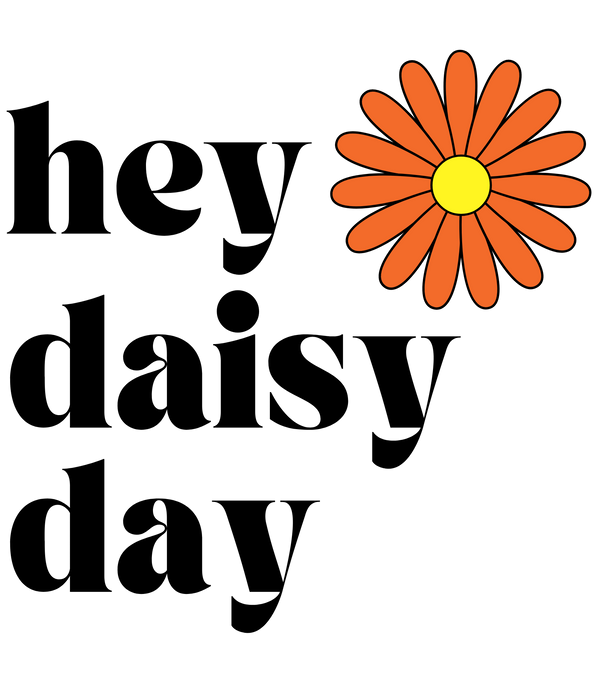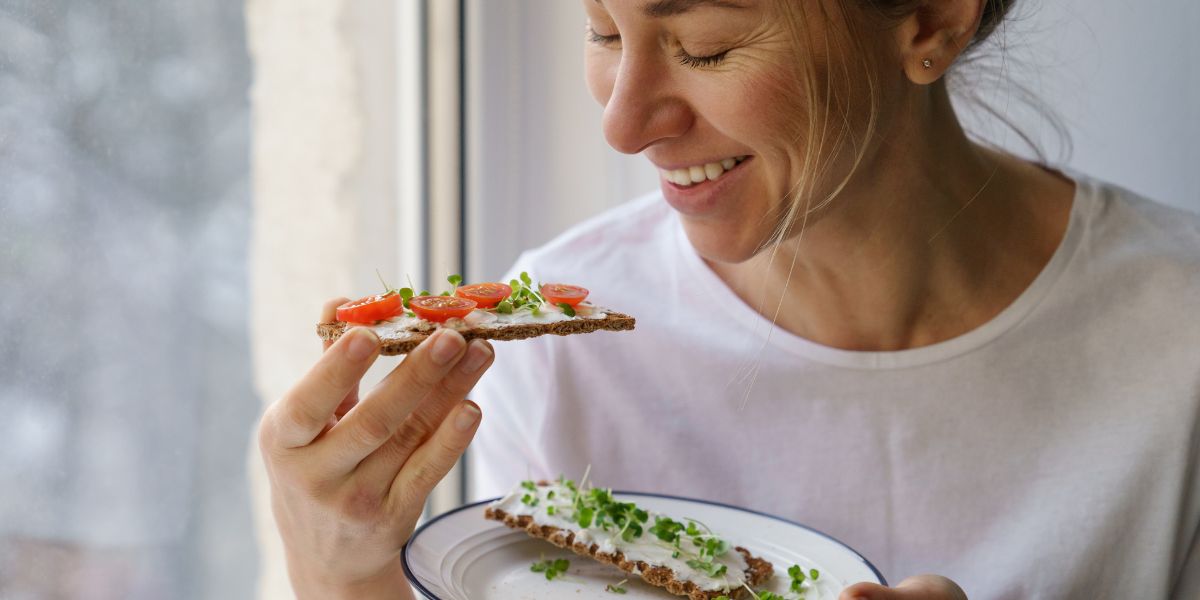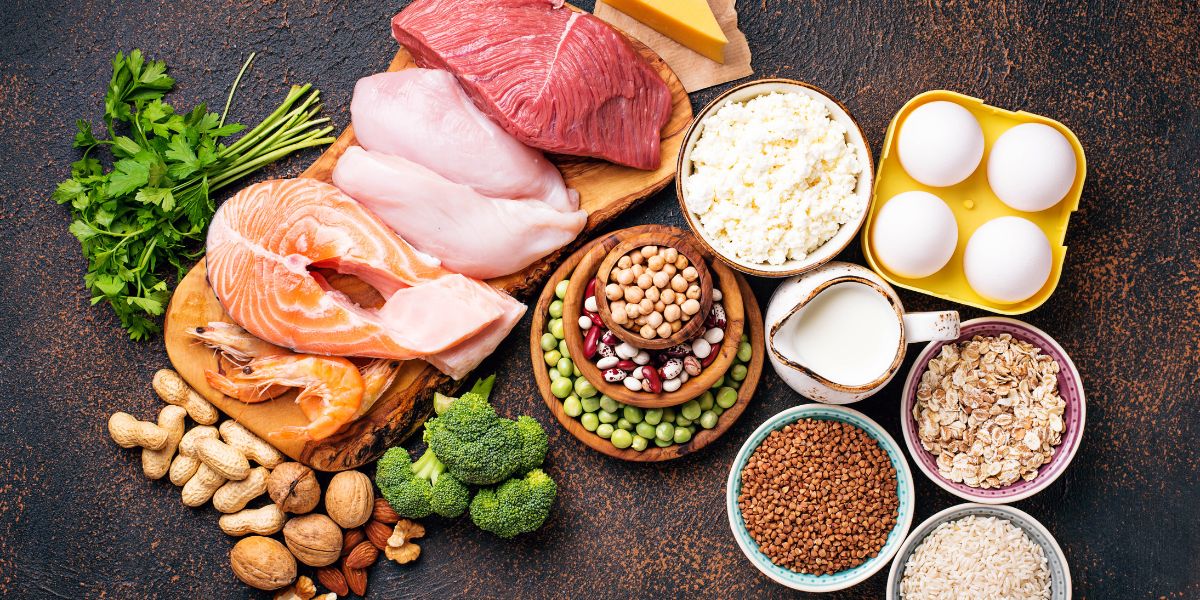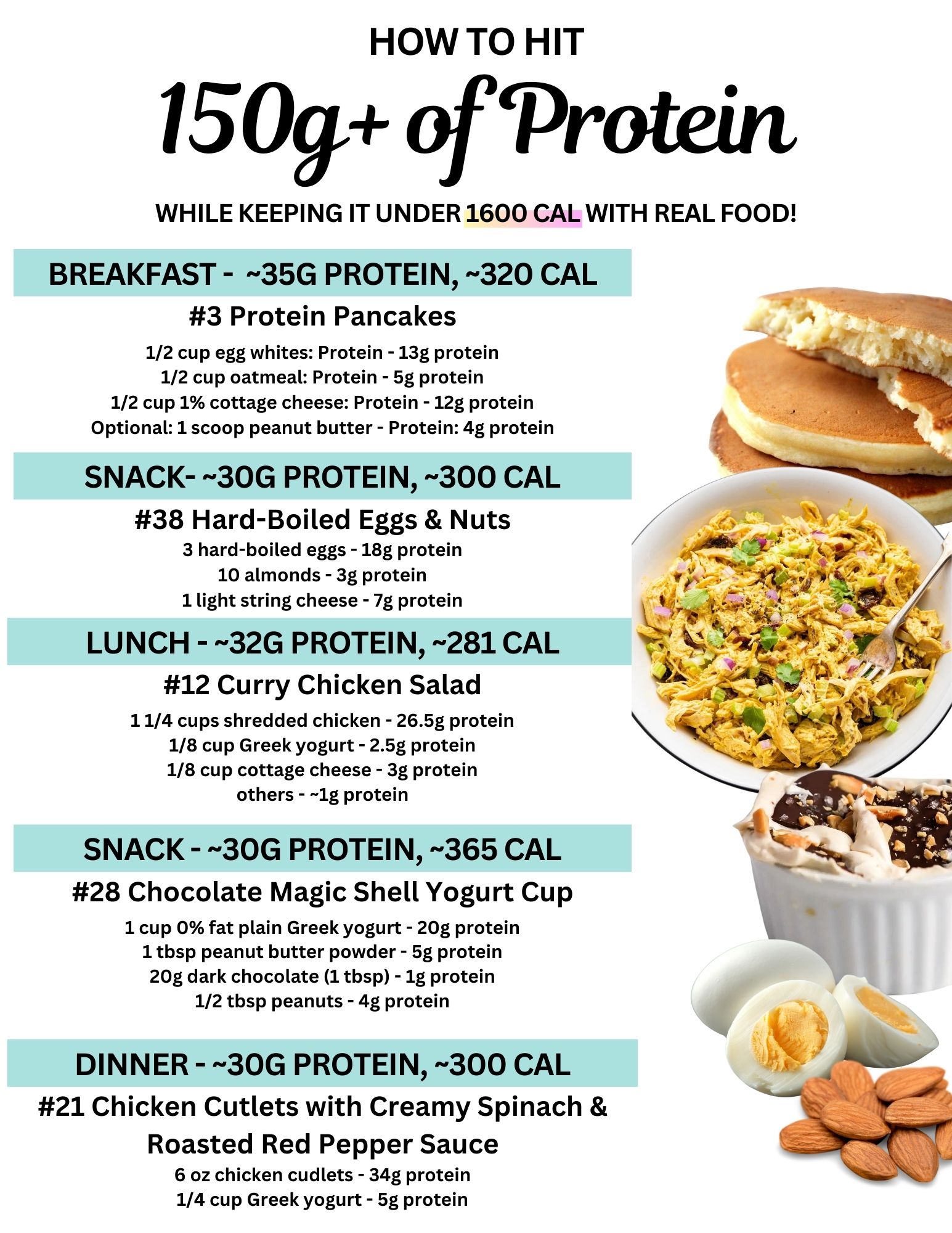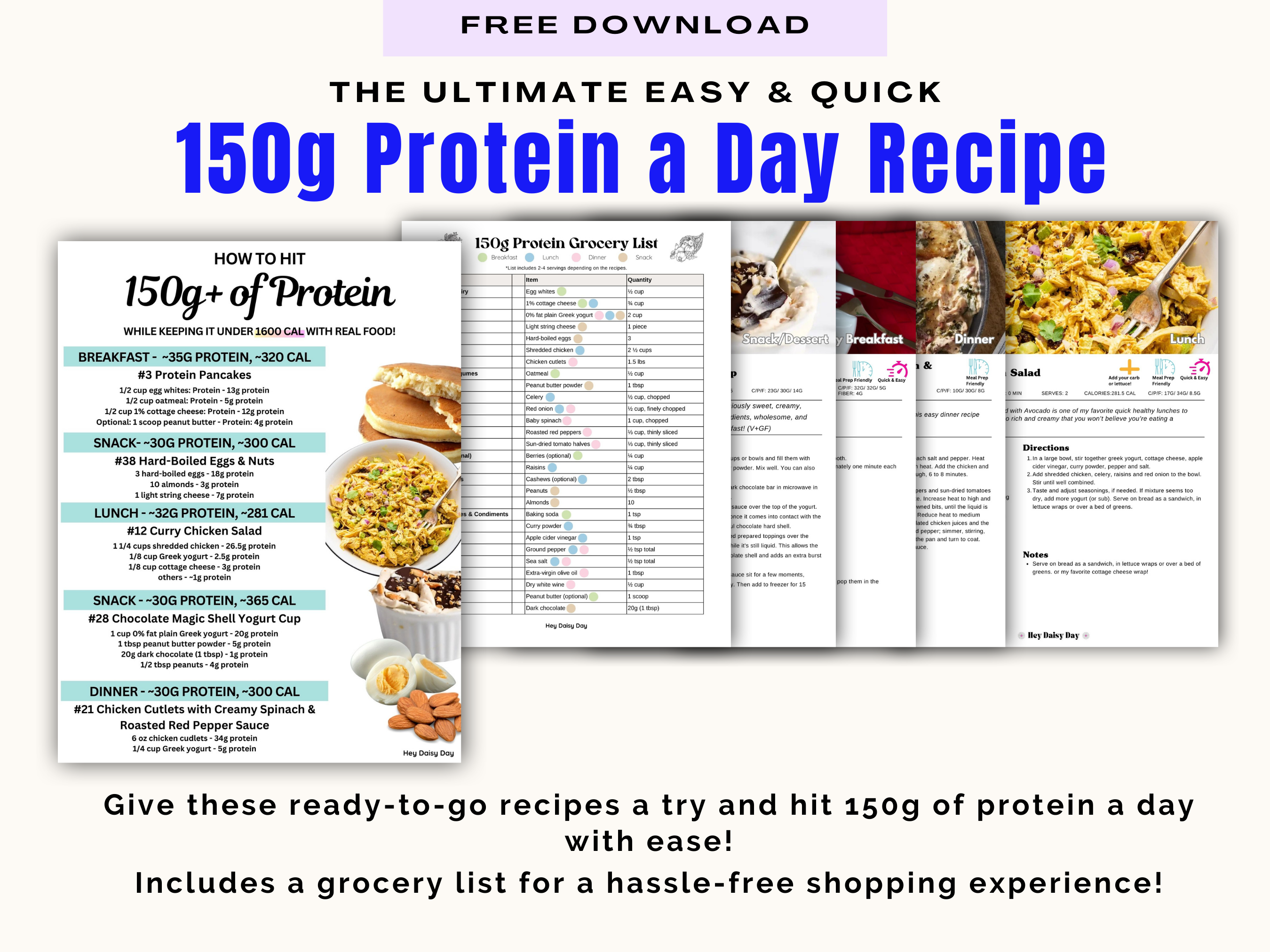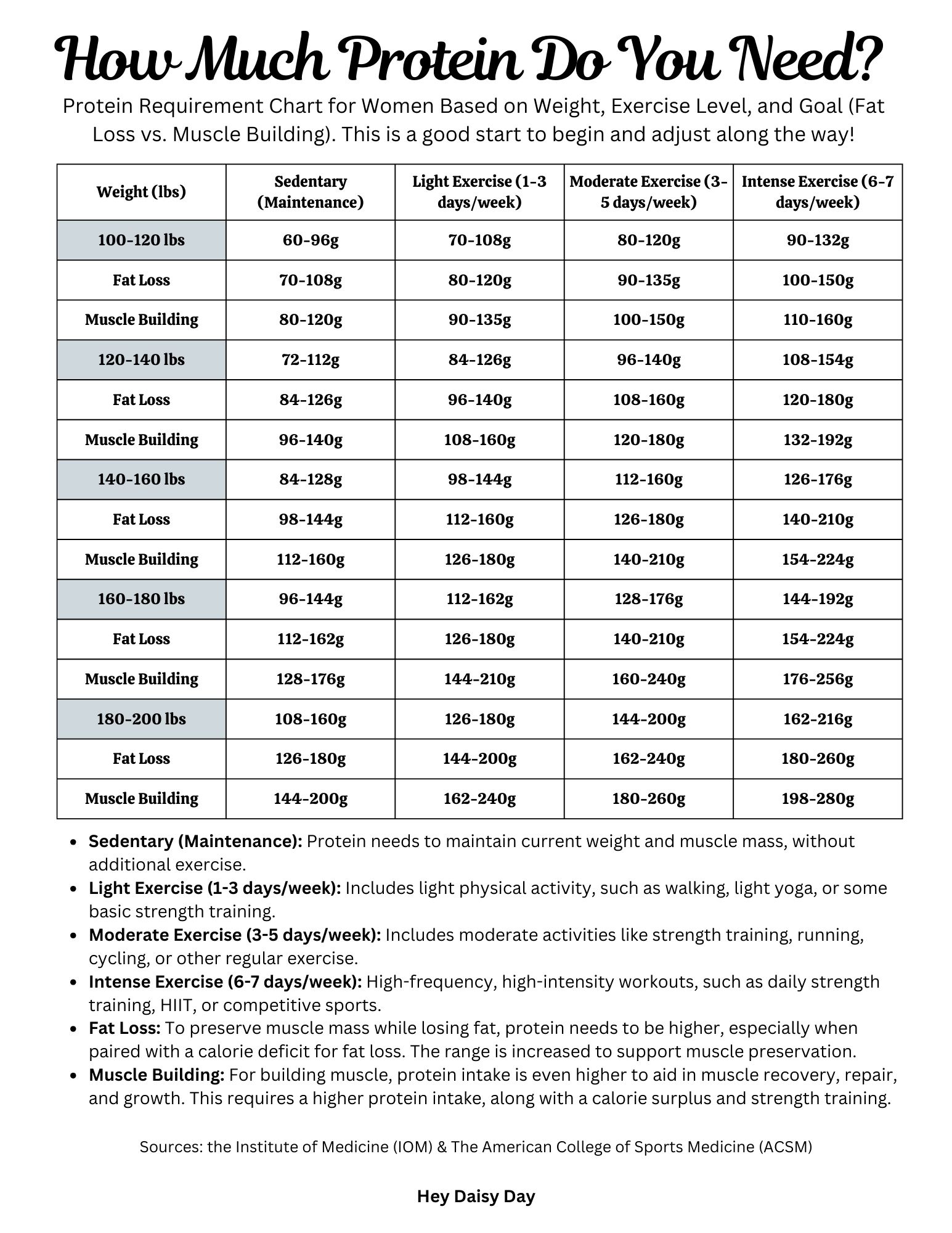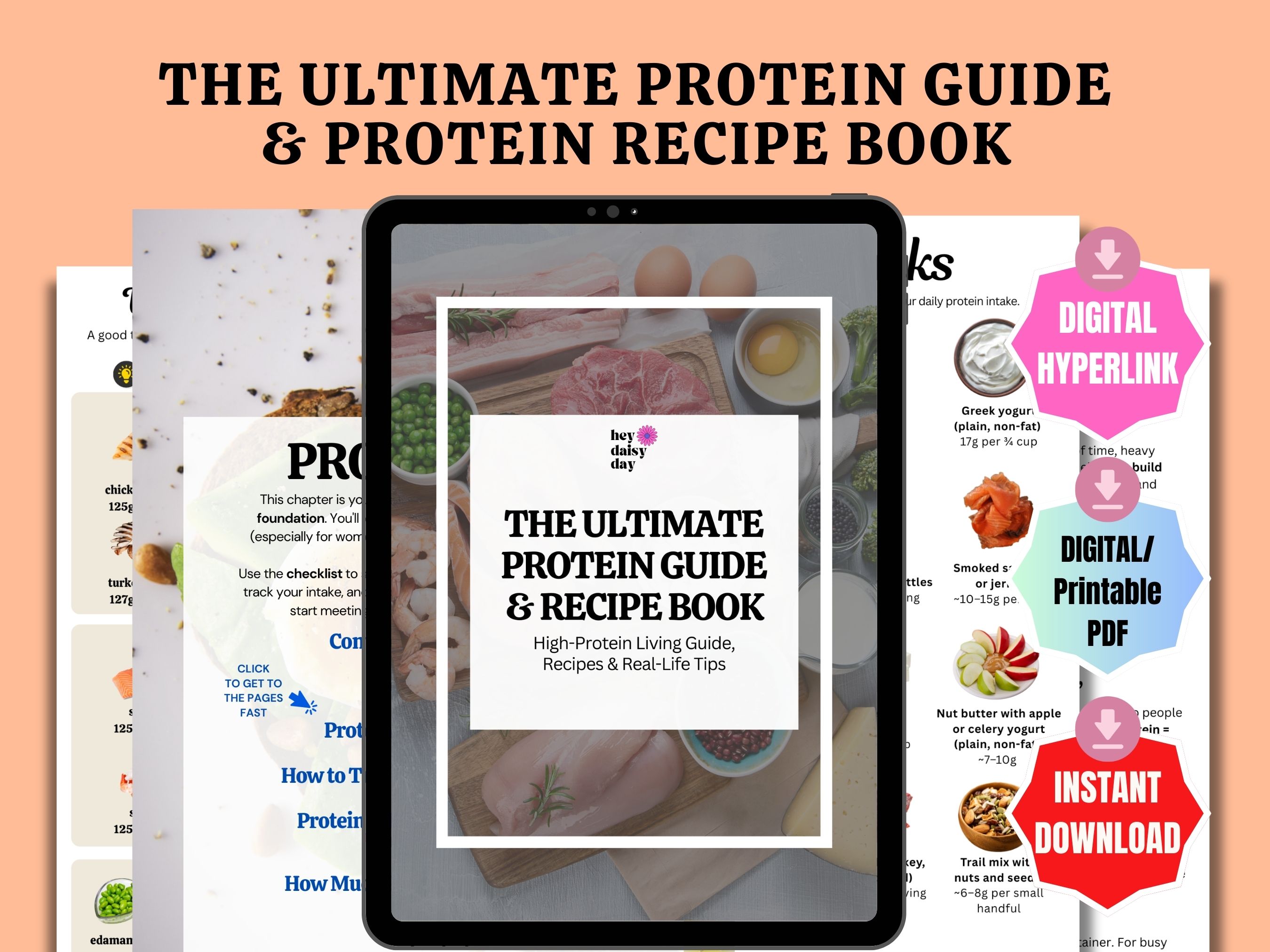
If you're aiming to boost muscle mass and lose fat, increasing your protein intake is one of the most effective strategies. The magic number? 150g of protein a day! While that may sound like a lot, it’s totally achievable with a bit of meal planning. If you’ve already set a goal of hitting 150g of protein daily but find it challenging to reach, this article is for you!
A high-protein diet can also help with energy levels, muscle recovery, and keeping you full throughout the day.
In this article, we’ll explore who benefits from achieving 150g of protein per day and show you how to hit your protein target with a high-protein, low-calorie meal plan that’s both nutritious and easy to follow.
Why Do You Need 150g of Protein?
To understand why 150g of protein works so well, we need to dive into nutrition goals. The average adult requires around 0.8g of protein per kilogram of body weight, but if you’re aiming to build muscle, lose weight, or just maintain a lean body mass, your needs are higher. For example, a 150lb person needs about 110-120g of protein to support their fitness journey. But to really maximize fat loss and muscle gain, 150g of protein can give you the edge.
Who Needs 150g of Protein?
While 150g of protein isn’t necessary for everyone, it’s especially beneficial for specific groups of people:
-
Active Women (Especially Those Over 35): As you get older, maintaining muscle mass becomes more challenging, especially with an aging metabolism. Women who work out regularly—whether it's through strength training, running, or other forms of exercise—need more protein to support muscle growth and recovery.
-
Women Looking to Lose Weight or Body Fat: Protein helps with satiety (feeling full), which can prevent overeating and help you stay on track with your calorie meal plan. When you're in a calorie deficit to lose fat, getting enough protein helps preserve muscle mass while burning fat.
Weight Range for Women Looking to Lose Weight or Body Fat:
- For women in the 120-150lb range, aiming for 120-140g of protein a day will help you keep muscle while losing fat.
- For women in the 150-180lb range, 140-160g of protein will support muscle retention and fat loss.
- For women over 180lbs, 160-180g of protein can help prevent muscle loss while promoting fat loss.
-
Women Building Muscle: If you’re focused on building or maintaining muscle, 150g of protein provides your body with the raw materials it needs to repair and grow muscle tissue, especially after strength training workouts.
-
Active Older Adults: As we age, we naturally lose muscle mass. Consuming higher protein intake like 150g protein can help prevent muscle loss and maintain lean body mass, which is crucial for mobility and strength.
-
Bodybuilders or Athletes: Individuals training at an intense level, whether for bodybuilding, powerlifting, or other forms of performance, may require 150g of protein to meet the demands of their training and muscle recovery.
How Protein Helps with Weight Loss and Muscle Mass
A high-protein diet offers nutrient-dense meals that are not only healthy but also satisfying. Here's how protein plays a crucial role in your fitness journey:
- Supports Muscle Growth: After strength training, your muscles need protein to recover and grow. That’s why getting enough protein-rich foods, like lean meats and egg whites, can give your muscle strength a major boost.
- Aids in Fat Loss: Protein helps you stay fuller longer. It also increases the thermic effect of food, meaning you burn more calories digesting it. When combined with a calorie meal plan focused on lean protein and healthy fats, it can lead to fewer calories consumed and more fat burned.
- Maintains Energy Levels: Having protein at every meal keeps your blood sugar stable, helping to avoid energy crashes and midday cravings.
Sample High-Protein Meal Plan (Animal - Protein Source based): 150g of Protein in a Day & Less than 1600 Calories
Ready to start hitting your protein goals? Here’s a simple 1-Day meal plan idea to help you reach 150g of protein in a day. (And you can repeat as many days as you want!)
🥞 Breakfast: Protein Pancakes
- 1/2 cup egg whites: 13g protein
- 1/2 cup oatmeal: 5g protein
- 1/2 cup 1% cottage cheese: 12g protein
- Optional: 1 scoop peanut butter: 4g protein
Total: ~35g protein, ~320 calories
🥚 A.M. Snack: Hard-Boiled Eggs & Nuts
- 3 hard-boiled eggs: 18g protein
- 10 almonds: 3g protein
- 1 light string cheese: 7g protein
Total: ~30g protein, ~300 calories
🥗 Lunch: Curry Chicken Salad
- 1 1/4 cups shredded chicken: 26.5g protein
- 1/8 cup Greek yogurt: 2.5g protein
- 1/8 cup cottage cheese: 3g protein
- Other ingredients: ~1g protein
Total: ~32g protein, ~281 calories
🍫 P.M. Snack: Chocolate Magic Shell Yogurt Cup
- 1 cup 0% fat plain Greek yogurt: 20g protein
- 1 tbsp peanut butter powder: 5g protein
- 20g dark chocolate (1 tbsp): 1g protein
- 1/2 tbsp peanuts: 4g protein
Total: ~30g protein, ~365 calories
🥘 Dinner: Chicken Cutlets with Creamy Spinach & Roasted Red Pepper Sauce
- 6 oz chicken cutlets: 34g protein
- 1/4 cup Greek yogurt: 5g protein
Total: ~30g protein, ~300 calories
🌟 Daily Total: ~150g Protein / 1600 calories
The magic part? These meals are not only delicious but also low calorie, so you can easily hit your 150g protein goal while staying in a calorie deficit—perfect for fat loss!
[**If you are interested in the full recipes & grocery list all done for you, sign up here for FREE PDF!**]
Sample 150g High Protein Plant-Based Meal Plan (1,600 Calories)
Hitting 150g of protein on a plant-based diet takes a little planning, but it's totally doable with a mix of plant-based protein sources like tofu, tempeh, lentils, and protein powder. Here’s a high-protein, low-calorie meal plan to get you there!
🥞 Breakfast: Chocolate Protein Oatmeal
- ½ cup rolled oats (5g protein, 150 cal)
- 1 scoop plant-based protein powder (25g protein, 110 cal)
- 1 tbsp chia seeds (2g protein, 60 cal)
- ½ cup unsweetened almond milk (1g protein, 15 cal)
- ½ tbsp cocoa powder (1g protein, 10 cal)
- ½ tbsp peanut butter powder (3g protein, 15 cal)
Total: ~40g protein, ~350 calories
🥑 A.M. Snack: Tofu & Avocado Toast
- 2 oz extra-firm tofu, crumbled (10g protein, 90 cal)
- ½ slice whole grain bread (3g protein, 50 cal)
- ¼ avocado (1g protein, 60 cal)
- 1 tbsp nutritional yeast (3g protein, 20 cal)
- 1 tsp olive oil (0g protein, 30 cal)
Total: ~25g protein, ~250 calories
🥗 Lunch : Lentil & Quinoa Power Bowl
- ½ cup cooked lentils (9g protein, 115 cal)
- ½ cup cooked quinoa (4g protein, 110 cal)
- 3 oz tempeh (18g protein, 165 cal)
- ½ tbsp lemon juice (0g protein, 5 cal)
- 1 cup steamed broccoli (3g protein, 50 cal)
Total: ~40g protein, ~400 calories
🥜 P.M. Snack: Plant-Based Protein Shake
- 1 scoop vegan protein powder (20g protein, 120 cal)
- 1 cup unsweetened almond milk (1g protein, 30 cal)
- ½ frozen banana (0g protein, 50 cal)
- ½ tbsp peanut butter powder (3g protein, 15 cal)
Total: ~20g protein, ~250 calories
🍛 Dinner: Tofu Stir-Fry with Brown Rice
- 3 oz tofu, pan-fried in 1 tsp olive oil (15g protein, 150 cal)
- ½ cup cooked brown rice (3g protein, 110 cal)
- 1 cup sautéed mixed vegetables (4g protein, 70 cal)
- 1 tbsp low-sodium soy sauce (0g protein, 10 cal)
Total: ~25g protein, ~350 calories
🌟 Daily Total: ~150g Protein / 1600 calories
Tips for Reaching Your 150g Protein Target
Hitting 150g of protein every day might seem like a challenge, but with the right strategy, it becomes second nature. Whether you're eating a high-protein diet for weight loss, muscle mass, or overall health, these simple hacks will help you meet your daily protein goals without stress.
1. Prioritize Protein at Every Meal
Make protein the star of every meal instead of an afterthought. Build your meals around lean protein sources like:
✅ Egg whites, cottage cheese, Greek yogurt (for dairy lovers)
✅ Chicken, lean beef, turkey, fish (for meat eaters)
✅ Tofu, tempeh, lentils, and plant-based protein powder (for plant-based eaters)
Related Article:High-Protein Foods for Weight Loss & Building Muscle
2. Use Protein Powder to Fill the Gaps
If you struggle to get enough grams of protein from whole foods, a high-quality protein powder can help.
🔹 Mix protein powder into smoothies, oatmeal, yogurt, or even coffee
🔹 Look for at least 20g protein per scoop to help you hit your protein target
Related Article: How to choose the best protein powder (2025 guide)
3. Meal Prep for Success
Having protein-rich foods ready to go saves time and ensures you stay on track.
🔸 Cook a batch of chicken, tofu, or lean meats at the start of the week
🔸 Pre-boil eggs for easy a.m. snacks
🔸 Keep high-protein snacks like mozzarella slices, protein bars, or cottage cheese on hand
4. Mix Up Your Protein Sources
Eating the same protein sources daily can get boring. Try different quality protein sources like:
🥩 Lean meats & fish: Chicken breast, lean beef, turkey, salmon
🥚 Eggs: Scrambled, soft-boiled eggs, hard-boiled eggs
🥛 Dairy: Cottage cheese, Greek yogurt, mozzarella slices
🌱 Plant-based proteins: Tempeh, tofu, lentils, quinoa
🥜 Nuts & seeds: Almonds, peanuts, hemp seeds, chia seeds
5. Snack Smart
A protein-packed snack can help you reach your protein target without adding too many extra calories. Try:
✅ Greek yogurt with peanut butter powder
✅ Protein bars with at least 15-20g protein (Try my favorite recipe here~!)
✅ Hard-boiled eggs with nuts
✅ Cottage cheese with fruit
6. Don’t Forget Healthy Fats & Carbs
A high-protein diet doesn’t mean skipping out on healthy fats and whole grains.
🍠 Pair sweet potatoes, brown rice, or quinoa with protein for balanced meals
🥑 Add avocado, olive oil, or nuts for essential fatty acids
7. Track Your Progress
Using a food tracking app can help you see if you’re hitting your daily averages for protein.
📊 Track your grams of protein, g carbs, and g fat to stay on top of your nutrition goals
Why Protein Is Crucial for Older Women
For older women, maintaining muscle mass is particularly important. As we age, we naturally lose muscle, which can affect strength and mobility. By consuming higher protein intake like the 150g protein meal plan, you can slow down muscle loss and preserve strength.
How to Personalize Your 150g Protein Meal Plan
Everyone’s nutritional needs are unique, and the right amount of protein depends on your activity level, current weight, and fitness goals. If you’re unsure how much protein you need, consider consulting a registered dietitian or using an online calorie calculator to determine your daily calorie goal.
As a general guideline, aiming for 1.6–2.2g of protein per kilogram of body weight (0.7–1 gram per pound) is a great place to start if you’re active. To make it easier, here’s a simple chart to give you a general idea of where to begin—you can always adjust based on your progress and needs!
Making Protein Work for You
No matter where you are on your fitness journey, getting enough protein is one of the most effective ways to reach your nutrition goals. By incorporating high-protein foods like clean meats, cottage cheese, and protein bars, you’ll be well on your way to building muscle strength and supporting weight loss. And with a few meal-prep tips and a bit of planning, hitting your daily protein goals can be easier than you think!
Ready to level up your protein game?
Want simple, no-fuss ways to increase protein in your current diet? Check out my protein guide for cheat sheets and done-for-you meal plans that take the guesswork out of meal planning. Let’s make healthy eating effortless and get you closer to your goals—without overcomplicating it!
